WTBD Community Grant Fund Supports Menstrual Health Project in Chaukati, Nepal.
Posted on
01/09/20
Author
Michael D. Smith MSW/MPH
In an effort to give back to our wonderful network of international partners, Dragons has a Community Grant Fund that awards grants to local organizations based on a comprehensive application process. Some of this year’s grant funds were distributed to support a menstrual health project in Chaukati, Nepal. Thank you to Michael D. Smith MSW/MPH (Nepal Himalaya Studies Instructor) for sharing more about this project via the following report!
Introduction
For over ten years, Where There Be Dragons has had the pleasure of bringing numerous Gap Semester, Summer, and College Study Abroad student groups for rural homestay visits to Chaukati village in Sindhupalchowk District, northeast of Kathmandu.
Travel to Chaukati from Kathmandu takes about four hours by bus on the Araniko Highway to the nearest town of Bahrabise, located just above where the Bhote Khosi (Tibetan River) meets the Sun Khosi (Gold River). Then one must hike three hours up a hill through forests and fields from the highway to the villages above.
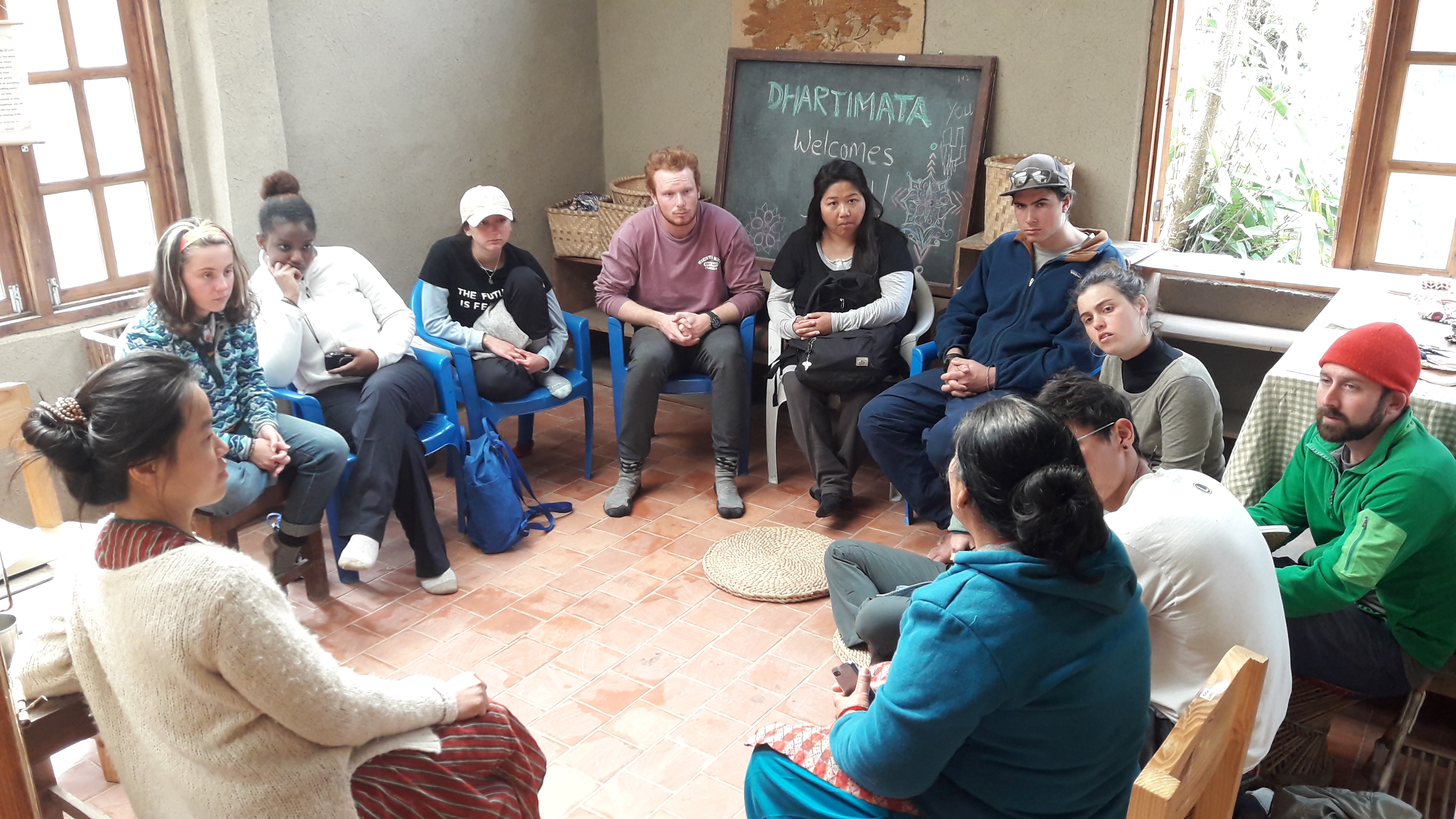
Chaukati was one of hundreds of communities whose village was completely destroyed in the devastating earthquakes of April and May 2015. Of hundreds of houses, not a single one remained standing. Many families lost most of their possessions, as well as livestock such as chickens, goats, cows and buffalo (the lifeblood of rural Nepal).
Chaukati is a village of mixed ethnicities and castes, including many members of the Thangmi (Thami) community, a small ethnic group known for traditions that reflect a close relationship with the natural world.
The Thangmi continue to gather food and medicines from the forest and maintain unique shamanic cultural practices. Most Thangmi elders never received any formal education, and many only speak Thangmi language, of which an estimated 20,000 native speakers remain.
Project Origin
Dragons student groups and alumni instructors, together with local government and some development NGOs, have joined a number of projects in Chaukati, before and after the earthquakes, including construction of a new health center and elementary school, dozens of new homes for marginalized local families, and other assistance such as agricultural development and new stoves. Other organizations, such as Its Her Turn Nepal (Hamro Palo Nepal), have assisted the community with non-tangible social development, such as conducting leadership trainings and empowerment workshops for girls.
In the Fall of 2017, as Dragons instructors interviewed host families about learning service opportunities in the village, the idea of reusable sanitary pads came up in conversation. Some local girls were aware of the benefits of reusable sanitary pads from the previous Its Her Turn project, but there was nowhere to obtain the cotton pads in the area. When one instructor asked the girls if they would be interested to receive a distribution of the pads, they refused, instead suggesting that it would be best for them to organize a training in Chaukati to teach local women to make their own cotton pads, so that they would not be reliant on others to bring them to them.
The instructors approached a Nepal-based social enterprise, Dharti Mata (“Mother Earth” in Sanskrit), which runs a small factory that employs village women to sew a variety of sanitary pads from organic cotton. These attractive reusable pads, called “Love Lady Pads,” are designed to reduce social stigma in rural areas around menstruation, to support safe and healthy sanitary practices, and to reduce the problem of solid waste from single-use disposable sanitary pads.
Dharti Mata was co founded by Claire Lin, an eco-social entrepreneur from Taiwan, and Mithu Dhital, of the Hasera Permaculture Farm in Patlekhet in Nepal (where many Dragons students have studied). The women of Dharti Mata were enthusiastic to partner in the project, so the instructors applied for a $2000 of funding from Dragons Community Grant Fund to support Reusable Eco-Sanitary Pad DIY training workshops in Chaukati.
Project Description
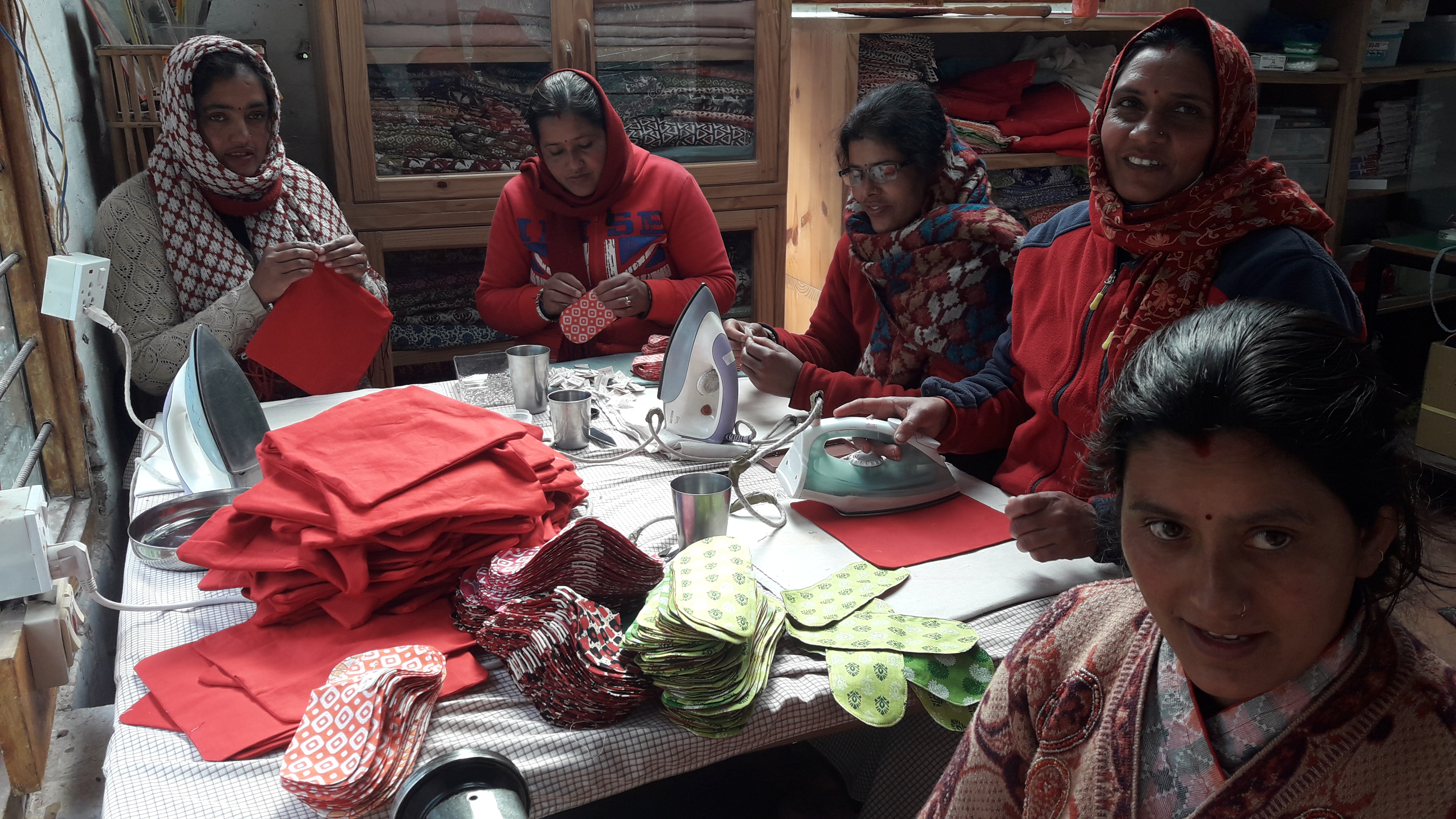 Due to the limited availability of trainers and the onset of monsoon, which is very heavy in Chaukati (as anyone who has been there during that time can attest!), the group of seven trainers from Dharti Mata were not able to conduct the workshops until late October of 2018. A four-hour workshop was held each day for three days. The workshops included sessions on female reproductive health, developing positive attitudes about women’s bodies and the menstrual cycles, massage and yoga techniques for maintaining a healthy uterus, discussions of the health and environmental benefits of reusable sanitary cloth pads, and a training session on how to stitch one’s own pads that included distribution of cloth, needles, and thread. Each woman was given five pads in total: A pre-made simple pad and two pad components that were stitched during the training (a long pad and a night pad). More about the Love Lady Pads line can be found on their website at www.dhartimata.com.
Due to the limited availability of trainers and the onset of monsoon, which is very heavy in Chaukati (as anyone who has been there during that time can attest!), the group of seven trainers from Dharti Mata were not able to conduct the workshops until late October of 2018. A four-hour workshop was held each day for three days. The workshops included sessions on female reproductive health, developing positive attitudes about women’s bodies and the menstrual cycles, massage and yoga techniques for maintaining a healthy uterus, discussions of the health and environmental benefits of reusable sanitary cloth pads, and a training session on how to stitch one’s own pads that included distribution of cloth, needles, and thread. Each woman was given five pads in total: A pre-made simple pad and two pad components that were stitched during the training (a long pad and a night pad). More about the Love Lady Pads line can be found on their website at www.dhartimata.com.
In total, 150 local women of a variety of ages, castes, and ethnicities representing all six wards of the Chaukati area attended the workshops. The workshops were supported by the local government and were officially opened by the municipal Chairperson, Man Bahadur Thami.
In the Spring of 2019, one instructor returned with the Dragons Nepal College Study Abroad course and visited Chaukati. They interviewed the local Women’s Craft Development Committee about asked about their impressions of the workshops. The women reported they were pleased that the workshop had taken place, as it created a safe forum for women to openly discuss issues they were facing. They requested more trainings and workshops in the future, and offered to serve as the local organizing partner.
The conversations surrounding women’s health in Chaukati inspired one of the Spring 2019 Nepal College Study Abroad students to return to Chaukati for two weeks to study local midwifery practices. While she was there, she participated in the birth of baby, and was able to learn a great deal about taboos and progress in the areas of female reproductive health.
Importance of Menstrual Health Projects in Nepal
In the contemporary Nepali context, programs such as this DIY Reusable Eco-Sanitary Pad training take on a larger significance than merely environmental or economic benefits. In many sectors of Nepali society, especially in rural areas, menstruation and female reproductive health issues have been considered taboo subjects. Myths and stigma surrounding ritual pollution from the touch of a menstruating woman prevails. In some areas, chapaudi, a practice where women move to a shed behind the house during menstruation, is still practiced. Though this tradition has been banned in Nepal, recent incidents of young women or teenage girls dying in their ‘menstruation sheds’ due to snakebite or other hazards have highlighted the persistence of these practices.
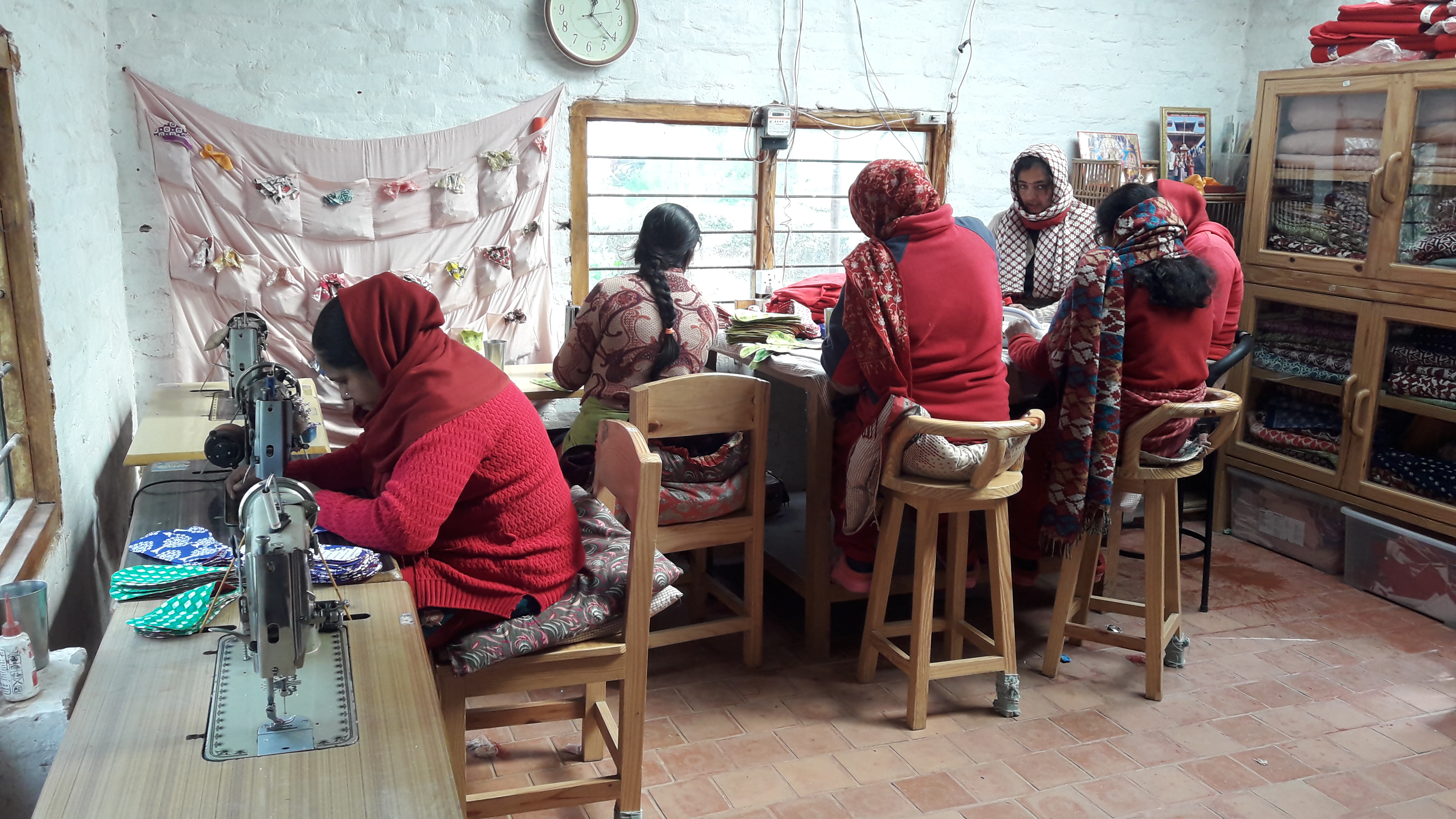 Even in communities like Chaukati where Chhaupadi is not practiced, taboos surrounding menstruation still affect Nepali women and girls. Many households in Kathmandu still prohibit menstruating women from entering kitchens, temples, eating with the family, and sleeping on their beds.
Even in communities like Chaukati where Chhaupadi is not practiced, taboos surrounding menstruation still affect Nepali women and girls. Many households in Kathmandu still prohibit menstruating women from entering kitchens, temples, eating with the family, and sleeping on their beds.
These practices can condition women to view their bodies as unclean and devalue themselves because they take blame for any misfortune their families experience. Chhaupadi’s legacy contributes to a wider disregard of women and girls that places them in danger.
Nepali news outlets have been raising awareness of this issue, and there are some indications that the media is in general, reporting more stories of female reproductive and gender related issues. Recent incidents of women dying in menstruation sheds have even been covered in international media such as the New York Times. Encouraging projects that support local women to advance the conversation about female reproductive health, helps de-stigmatize harmful attitudes and given women the space to voice experiences previously neglected in formal and public spheres.
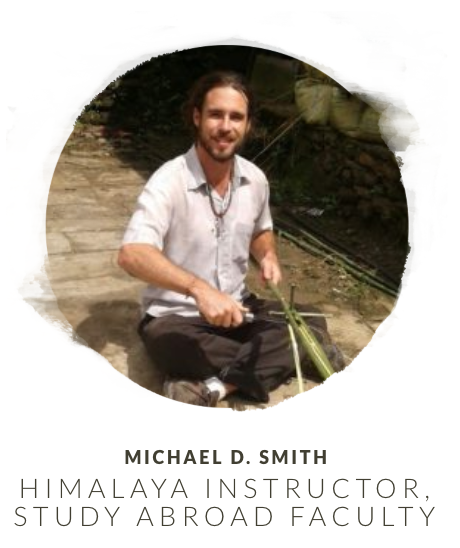
Dharti Mata and the organizers of the Chaukati Reusable Eco-Sanitary Pad DIY training workshops are grateful for the support of the Dragons Community Grant Funds for this project. It would not have been possible without the creation of the Fund or the instructors who carefully managed program budgets in order to contribute money to the fund. Thank you!
PS. WANT DRAGONS BLOG UPDATES SENT DIRECTLY TO YOUR INBOX? ONE EMAIL A WEEK. NOTHING MARKETY. UNSUBSCRIBE ANY TIME. SUBSCRIBE TO DRAGONS BLOG AND STAY CONNECTED TO THE COMMUNITY. ❤️


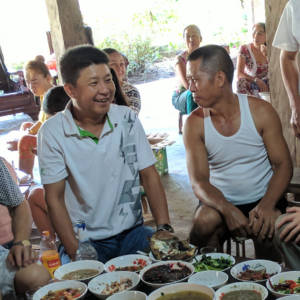
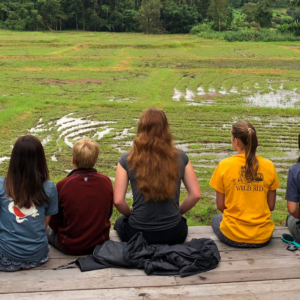

Leave a Comment